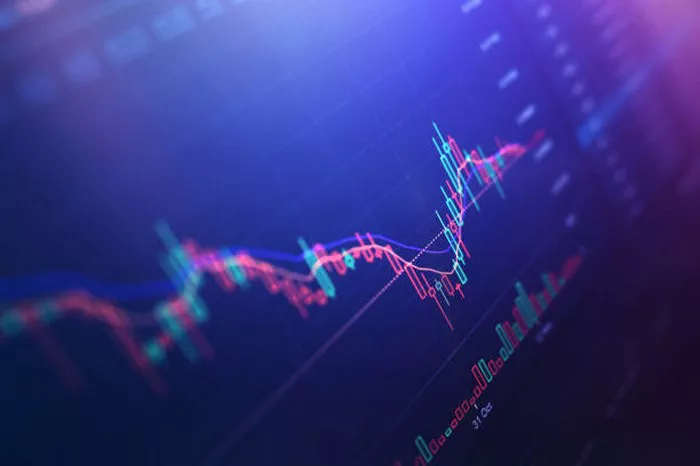Futures contracts are standardized financial agreements that obligate parties to buy or sell assets at predetermined prices and dates. Traded on exchanges worldwide, futures contracts encompass a wide range of assets, including commodities, currencies, stock indices, and interest rates. This article delves into the most traded futures contracts, highlighting their significance, popularity, and factors driving trading volumes.
Introduction to Futures Trading
Futures trading is a cornerstone of financial markets, providing investors with opportunities to speculate on price movements, hedge against risks, and manage exposure to various assets. Traded on organized exchanges, futures contracts offer liquidity, transparency, and efficiency in price discovery.
Criteria for Determining Trading Volume
Trading Volume
Trading volume is a key metric used to gauge the popularity and liquidity of futures contracts. Contracts with high trading volumes attract market participants, ensure tight bid-ask spreads, and facilitate order execution.
Open Interest
Open interest refers to the total number of outstanding futures contracts at any given time. High open interest indicates active participation and ongoing interest in a particular futures contract, reinforcing its liquidity and market depth.
Market Capitalization
For futures contracts based on indices or baskets of assets, market capitalization serves as a relevant criterion for assessing trading activity. Contracts tied to widely followed indices or benchmark assets often have higher market capitalizations and trading volumes.
Most Traded Futures Contracts
E-mini S&P 500 Futures (ES)
E-mini S&P 500 futures, based on the Standard & Poor’s 500 Index, are among the most actively traded futures contracts globally. Offering exposure to 500 leading U.S. companies, these contracts attract traders seeking to capitalize on equity market trends and hedge portfolio risk.
Eurodollar Futures (GE)
Eurodollar futures, tied to U.S. dollar-denominated deposits held outside the United States, are renowned for their liquidity and importance in interest rate markets. Traders use Eurodollar futures to speculate on or hedge against changes in short-term interest rates.
Crude Oil Futures (CL)
Crude oil futures contracts, tied to the price of crude oil, are widely traded due to the commodity’s significance in global energy markets. Traders and investors use crude oil futures to capitalize on price movements, hedge energy-related risks, and gain exposure to oil prices.
Gold Futures (GC)
Gold futures contracts, representing the price of gold bullion, are popular among investors seeking exposure to precious metals. With gold’s status as a safe-haven asset, gold futures serve as tools for diversification, inflation hedging, and portfolio protection.
See Also: What Are the Two Main Types of Energy Futures?
Treasury Bond Futures (ZB)
Treasury bond futures, linked to U.S. government bonds with long maturities, are essential instruments in fixed-income markets. Traders utilize Treasury bond futures to speculate on interest rate changes, manage duration risk, and construct yield curve strategies.
Natural Gas Futures (NG)
Natural gas futures contracts, reflecting the price of natural gas, are actively traded by participants in energy markets. Traders use natural gas futures to capitalize on seasonal demand patterns, weather-related fluctuations, and supply-demand dynamics.
Factors Driving Trading Volumes
Market Sentiment and Economic Outlook
Market sentiment and economic outlook play significant roles in driving trading volumes for futures contracts. Bullish or bearish sentiments, economic indicators, and geopolitical developments can influence investor behavior and trading activity.
Volatility and Price Movements
Volatility and price movements in underlying markets impact trading volumes for futures contracts. Heightened volatility often leads to increased trading activity as traders seek to capitalize on price fluctuations or hedge against risks.
Interest Rate Policies
Central bank policies and interest rate decisions influence trading volumes for interest rate futures contracts. Changes in monetary policy, yield curve expectations, and economic forecasts can drive shifts in trading activity and open interest.
Commodity Supply and Demand
For commodity futures contracts, supply and demand dynamics exert a significant influence on trading volumes. Factors such as production levels, inventories, geopolitical tensions, and weather conditions can affect commodity prices and trading volumes.
Implications for Traders and Investors
Liquidity and Execution
Highly traded futures contracts offer liquidity and efficient order execution, enabling traders to enter and exit positions with minimal slippage. Liquidity is essential for managing risk, implementing trading strategies, and optimizing performance.
Price Discovery and Transparency
Futures contracts with robust trading volumes contribute to price discovery and transparency in financial markets. Accurate and timely price information enhances market efficiency, reduces information asymmetry, and fosters fair and orderly trading.
Risk Management and Hedging
Active futures contracts provide effective tools for risk management and hedging purposes. Market participants can utilize liquid futures contracts to hedge against price risks, diversify portfolios, and mitigate exposure to adverse market conditions.
Conclusion
The most traded futures contracts play a vital role in global financial markets, offering liquidity, price discovery, and risk management capabilities to traders and investors. By understanding the criteria for determining trading volume, the factors driving trading activity, and the implications for market participants, traders can navigate futures markets with confidence and capitalize on trading opportunities effectively. As cornerstone instruments in the financial landscape, highly traded futures contracts continue to shape market dynamics and influence investment strategies worldwide.


